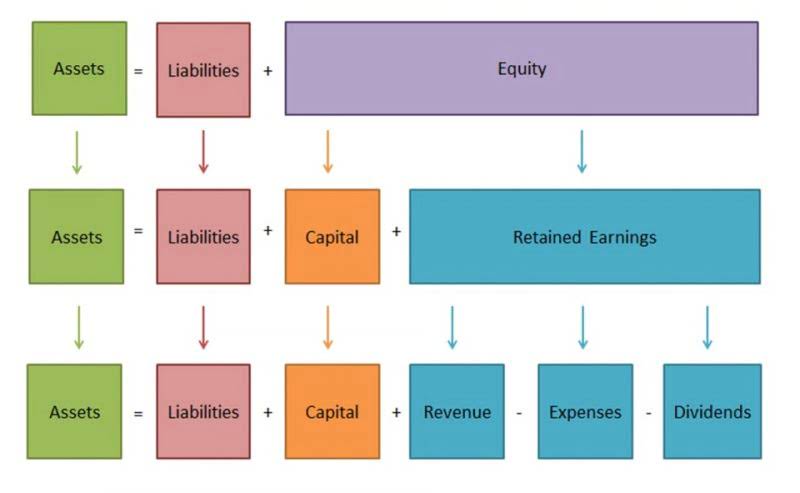Content
- FAQs on Small Business Bookkeeping
- Know your numbers to grow your business
- What Does a Bookkeeper Do for Your Small Business?
- Payroll
- How to bookkeep for your small business
- What Accounting and Bookkeeping Software Should You Use?
- How to Do Bookkeeping: Basics Every Small Business Owner Needs to Know

The major reports to include are the profit and loss, the balance sheet, and a cash flow analysis. Additionally, the aged accounts receivables and aged accounts payables reports are helpful in knowing which customers have not paid and which vendors are yet to be paid. These reports will help you gain greater insights into the financial health of your small business.
From the cash you have on hand to the debts you owe, understanding the state of your business’s finances means you can make better decisions and plan for the future. Using a spreadsheet is the cheapest option, especially if you use Google Sheets rather than Microsoft Excel, which costs a monthly fee. However, general ledgers can get complicated if you’re trying to juggle multiple accounts.
FAQs on Small Business Bookkeeping
Accounting is more strategic and includes summarizing, interpreting, and communicating financial transactions. GrowthForce accounting services provided through an alliance with SK CPA, PLLC. There are major differences between the three types of bookkeepers and what each can offer your business. Figure out which works for your business and start tackling the problems, or potential problems, with your books.

See how you can track and manage your whole financial picture in one place—from bank transactions, expenses, and beyond. Your balance sheet shows the assets, liabilities and owner’s equity for your business. Remember, assets are items What to Expect from Accounting or Bookkeeping Services owned by your company, and liabilities are things you owe on. Equity is the value of your business assets minus the liabilities; it’s basically the value you’d place on your company if you had to put a price tag on it today.
Know your numbers to grow your business
What’s important here is that your books should carefully record all of the owners’ equity accounts. To do the books for your small business, you need to be aware of all of the different account types. These include accounts payable, inventory, cash and many more that we’ve outlined in this blog. Whether you manage it by yourself, hire someone in-house, or outsource it to a company, having a sound bookkeeping process in place is critical to the management of your business. Doing your bookkeeping in Excel is a good option if you don’t want to spend extra money on software since you may already have the program installed on your work computers. Plus, there are tons of free Excel templates available, so you don’t have to reinvent the wheel with your business spreadsheets.
What kind of bookkeeping is used by small businesses?
Single-entry accounting records all of your transactions once, either as an expense or an income. This method is straightforward and suitable for smaller businesses that don't have significant inventory or equipment involved in their finances.
You can also integrate QuickBooks with Shopify to stay organized and up to date. It’s important to continually reassess the amount of time you’re spending on your books and how much that time is costing your business. This is why learning accounting basics is so important, even if you don’t intend on always doing the accounting yourself. Next, as a new small business owner, you’ll want to consider a business credit card to start building credit.
What Does a Bookkeeper Do for Your Small Business?
A small business can connect its bookkeeping system to these third parties for easy data sharing on projects and payments. Small-business bookkeeping also includes ensuring your business pays bills and invoices on time, which is known as accounts payable. Small businesses also handle aspects of accounts receivable, which ensures your business is paid for its goods or services. This can include estimating the eventual value of a finished project, preparing and sending invoices and providing statements. This includes importing and categorizing transactions properly, reconciling these transactions and making sure they’re recorded according to your entry system and accounting method.
- If you want, you can collect GST/HST even if you don’t earn this much in revenue, and put it toward input tax credits.
- Ditching spreadsheets for business accounting software can help you organize your financial documents and statements, reduce headaches during tax season, and remove unnecessary manual work.
- Along with reading this page to get a quick bookkeeping overview, we always recommend meeting with a CPA (certified public accountant) or bookkeeper before you open your doors.
- When deciding on the best solution for your business, it’s important to consider factors such as ease of use, cost, and the specific services you require.
- All told, those elements amount to roughly 95% automation of your accounting.
- The company updates the product every 3-6 weeks based on user feedback through their community forum.
Tag things as you work to track events, projects, locations, and anything that matters. Run custom reports based on your tags for an instant view of insights that matter most to you. Solves the tedious process of accessing https://kelleysbookkeeping.com/brigade-outsourced-accounting-for-small-businesses/ data for you and your clients. Find out what business structure is best for your small business and what the tax implications are for that setup. Now that you know some of the key terms, you need to put them to use!
